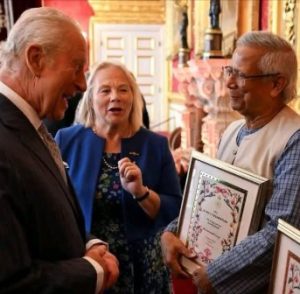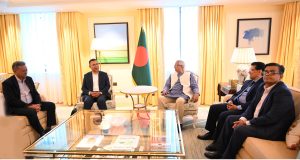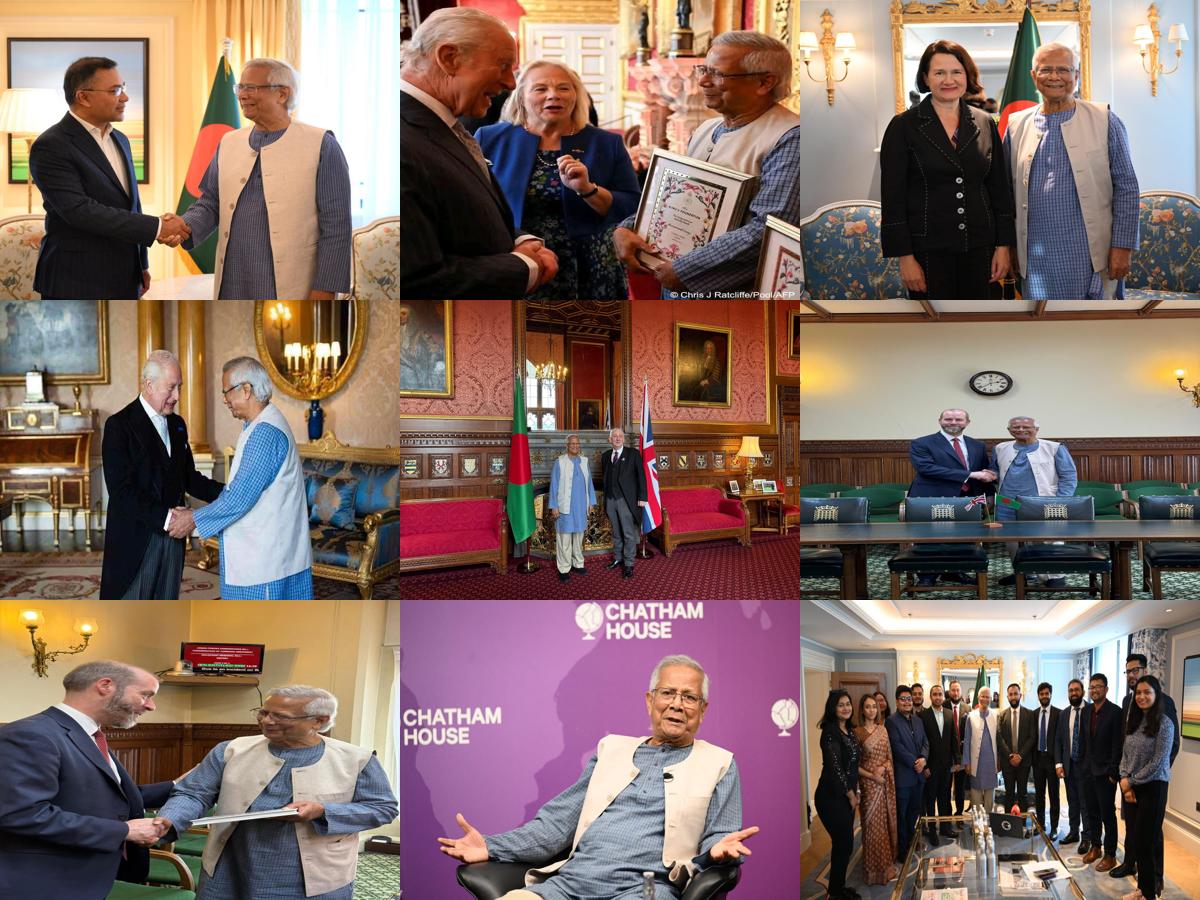Professor Muhammad Yunus’s four-day visit to London was far more than a diplomatic itinerary. It was a political, economic, and symbolic event that shook the British establishment and sent ripples through international circles.
His presence revived global attention to Bangladesh’s political transition and exposed a broader shift in power narratives, from exile to accountability, from palace diplomacy to street-level reform.
The visit was marked by high-profile meetings, including a private audience with King Charles III, who presented Yunus with the Harmony Award in recognition of his efforts toward social and environmental justice. The symbolism of this meeting went beyond formality: it underscored the legitimacy of the interim government and placed Yunus on a global platform as a transitional figure backed by moral and institutional capital.

This alone was a diplomatic win.
Equally significant was Yunus’s meeting with Tarique Rahman, the acting BNP chairperson. Held in a cordial atmosphere, the two leaders came to a broad consensus on holding elections before Ramadan 2026.
It was a political breakthrough that signalled alignment between the interim authority and the main opposition, something that had eluded the country for months. With this agreement, Yunus effectively neutralised speculation that his administration lacked political traction.
In the economic arena, Yunus hosted executives from Airbus and Menzies Aviation, both expressing interest in long-term partnerships with Bangladesh. Airbus offered to modernise Biman’s fleet with up to 85% funding through export credit, while Menzies proposed to manage airport ground services and make Dhaka a training hub.
These proposals reflect not just commercial intent but international confidence in the new administration’s openness and seriousness.
One of the most groundbreaking developments came from the UK’s National Crime Agency, which froze over £250 million in properties linked to former regime affiliates, during his visit to London. The action marked the largest single asset freeze ever by the NCA and strongly aligned with the interim government’s anti-corruption campaign.
The simultaneous meetings between Bangladesh’s central bank governor, anti-corruption chief, and major UK financial institutions set the stage for institutional cooperation in global asset recovery.
Amidst these achievements, the only visible rebuff came from Prime Minister Keir Starmer, who declined a meeting with Yunus, reportedly due to sensitivities involving MP Tulip Siddiq, Sheikh Hasina’s niece.

Yunus declined Tulip’s request for a meeting as well, stating that the matter was legal, not personal. The political awkwardness revealed how deeply Bangladesh’s anti-corruption drive is now entangled with UK domestic politics, exposing fault lines in Labour’s diaspora loyalties.
Yet the overall tone of the visit remained hopeful and transformative.
Yunus’s engagements with UK parliamentarians, trade ministers, students, and the Commonwealth Secretary-General highlighted a vision of a reformed, outward-looking Bangladesh.
From Chatham House to Westminster, the visit stitched together a narrative of reform, youth engagement, financial justice, and international cooperation.
In just four days, Professor Yunus managed to elevate his administration’s global standing, open critical trade and anti-corruption dialogues, and reframe Bangladesh’s political journey not as a domestic crisis but as a global concern.
His London tour was not just a statement. it was a turning point.


